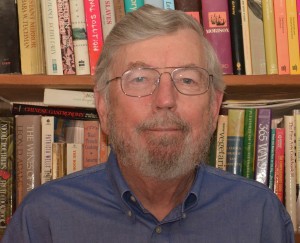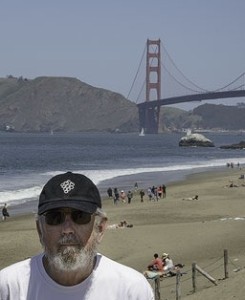John first got interested in chemistry in sixth grade when he had a chemistry set. Back then they were legitimate chemistry sets with real chemicals allowing one to occasionally blow things up. He was inspired by an excellent high school chemistry teacher who, unfortunately, became the Boy’s Dean a couple of years later. The fascination with chemistry remained, though.
John majored in chemistry at UC Berkeley where he did research with Andrew Streitwieser, Jr. Afterwards he went to Columbia University to get an MA from 1967-1968, working in Ronald Breslow’s group. After a stint at the University of Michigan, Ann Arbor, he moved back to California.
His first full-time job started in 1974 with Varian. This job would continue for the next 28 years, with one interruption for graduate school, and would lead to many experiences where he learned numerous critical skills. In 1977, Varian encouraged John to return to graduate school so he could get promoted to jobs that required a PhD. He entered UC Davis and finished his PhD in 1982 working with James Swinehart in the area of marine bioinorganic chemistry.
After the first year of graduate school, he was employed by Varian to spend a week a month to do technical training and teach people how to use instruments. This led to the opportunity to go to China and a number of locations in the US. After the completion of his PhD, he continued doing technical training for one year before transferring to research and development.
The R&D position involved communicating with a diverse group of people from other scientists and engineers to customers. Recalling his experience, John is most fond of his project on solid-phase micro extraction where he collaborated with Janusz Pawliszyn, a professor at the University of Waterloo in Ontario who invented this technique. John was asked to automate the technique, which required collaboration with mechanical, electrical, and software engineers while applying his chemistry knowledge in order to build this instrument. The project involved talking to customers, marketing employees, and interested groups to define the product and teach the sales force what the product was good for. These soft skills were vital not only to this experience, but much of his experience with Varian.
Unfortunately, one of the potential hazards of industry occurred where he got laid off in 2002, and had to look for another job. Knowing a lot of people in the chemistry department at UC Davis from his graduate work and further interactions, he applied to be a laboratory manager at UC Davis and got the position.
John stated that his experience with Varian was, “vital to getting the lab manager job”. During his career with Varian he had many responsibilities including: manufacturing, technical training, marketing, research and development, and project management. John’s primary instruments were HPLC, NMR, GC, and Mass Spectrometry.
As a laboratory manager at UC Davis, John was able to expand his scope of instrumental expertise including Fourier Transform Infrared Spectroscopy (FTIR), Circular Dichroism Spectroscopy (CD), and other instrumental techniques. The job consisted of executing and teaching instrumental maintenance, making sure the physical and analytical teaching lab instruments were working, collaborating with faculty and other departments, and managing donations to the chemistry department. Many of these donations involved using his connections with Varian to bring more instruments to the department, but a couple of pharmaceutical companies also donated extensively.
Throughout his life John has also been a very active member of ACS. He first joined in 1966 and since then has served on multiple committees and has served as a Councilor for seven years. He also played an instrumental role in working with ACS to provide assistance in finding jobs for chemists. He currently serves on the Committee for Economic and Professional Affairs, and the Subcommittee for Public Policy, which advocates for science at the Federal level.
John stresses the importance of the soft skills he picked up at Varian such as communication, budgeting, organization, and public service. These crucial skills apply to all jobs, and he gained much of his experience by working and communicating with many non-chemists during his Varian career.
Looking back, John Berg likes to call his career an “accidental career” indicating that what he planned for did not necessarily happen, but other opportunities turned up that were equally rewarding. His major piece of advice would be to look at all the opportunities available, “and take what you think might be interesting if there is nothing else available at the time.”


